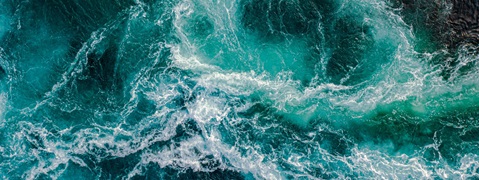


Besides using raw materials sustainably, using resources responsibly is also part of sustainable waste management. We therefore fulfil the necessary permit requirements. We prevent wastewater and waste as best we can, while unavoidable waste is properly disposed of in line with statutory requirements.
Our policy for managing waste is to prevent, reuse, recycle and eliminate. Preventing waste is the top priority. To do this, we examine our options for preventing waste in the relevant areas so that potential measures to reduce waste can be incorporated at the planning and procurement stage.
Comprehensive waste management ensures that all waste generated is disposed of properly in line with statutory requirements. A distinction is made between hazardous and non-hazardous waste as well as between recycling and eliminating waste in disposal. This is taken into account for further disposal. Disposal information systems are used to handle disposal services; these systems ensure that the applicable statutory and contractual conditions are adhered to in the disposal of generated waste.
Residual materials from our coal-fired power stations make up the majority of the waste generated. The ash from our hard coal-fired power stations and gypsums produced during flue gas desulphurisation are sold as power plant by-products. The ash from our lignite-fired power plants is 100% eliminated in our landfill sites for residual materials from power plants. Further waste is also generated in our businesses, which is also handled by the waste management system. We handle residual materials and waste from our power plants, generated during their operation as well as in the process of dismantling power plants, in line with statutory requirements.
Water is vital and a limited resource. Power generation can impair the condition of water bodies and sources and thus negatively affect the environment and society. As an industrial company that uses water in its plants, we see it as our duty to use water responsibly. This applies to both water consumption and water use during the extraction of and discharge into surface water or groundwater. We want to prevent or – if this is not possible – minimise the adverse effects of our operations on water bodies and ecosystems. We ensure that procedures, including supplying our thermal power plants with cooling water and keeping our open-cast mines dry by extracting groundwater, are as sparing as possible. We offset unavoidable consequences as best we can.
RWE’s operations that affect or may affect water bodies are recorded in view of their contact with water bodies and the type of effect on the water. Based on the existing permits, thresholds and reports as well as operational incidents in the previous year, we record and evaluate the environmental impacts for surface water and groundwater. We then adapt our risk-minimisation and accident-prevention measures according to the results of these evaluations.
RWE has its own internal wastewater treatment system. The regulatory authorities set control values to restrict the concentration of pollutants. These values are monitored using internal control systems. In addition to internal monitoring, official third-party monitoring ensures that any potential contamination is prevented in many areas. Complying with the permitted control values ensures that wastewater discharges do not conflict with surface water management objectives.

